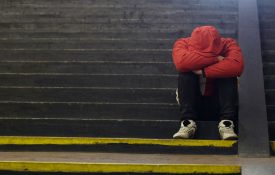-

American Academy of Arts & Sciences Elects 9 Psychological Scientists as Fellows
The American Academy of Arts & Sciences has elected APS Treasurer Roberta L. Klatzky, APS James McKeen Cattell Fellow J. Frank Yates, APS Fellow Mary C. “Molly” Potter, and several other psychological scientists as fellows
-

Childhood Bullying Linked to Health Risks in Adulthood
Findings from a longitudinal study suggest that childhood bullying may lead to long-lasting health consequences, impacting psychosocial risk factors for cardiovascular health well into adulthood.
-

Perception and Play: How Children View the World
The interactions among children’s brains, bodies, and surrounding environments have tremendous effects on how they learn to speak and identify specific items in their field of view. APS Fellow Linda B. Smith shares her groundbreaking methods for examining these processes.
-
A California Court for Young Adults Calls on Science
The New York Times: On a cloudy afternoon in the Bayview district, Shaquille, 21, was riding in his sister’s 1991 Acura when another car ran a stop sign, narrowly missing them. Both cars screeched to
-

Cognitive Skills Differ Across Cultures and Generations
An innovative study of children and parents in both Hong Kong and the United Kingdom, led by University of Cambridge researchers Michelle R. Ellefson and Claire Hughes, reveals cultural differences in important cognitive skills among
-
Can a Difficult Childhood Enhance Cognition?
The Atlantic: Hard childhoods seem to not only rob children of material joys, but also of brain power. Children who grow up poor tend to score worse on tests of memory, processing speed, language, and

